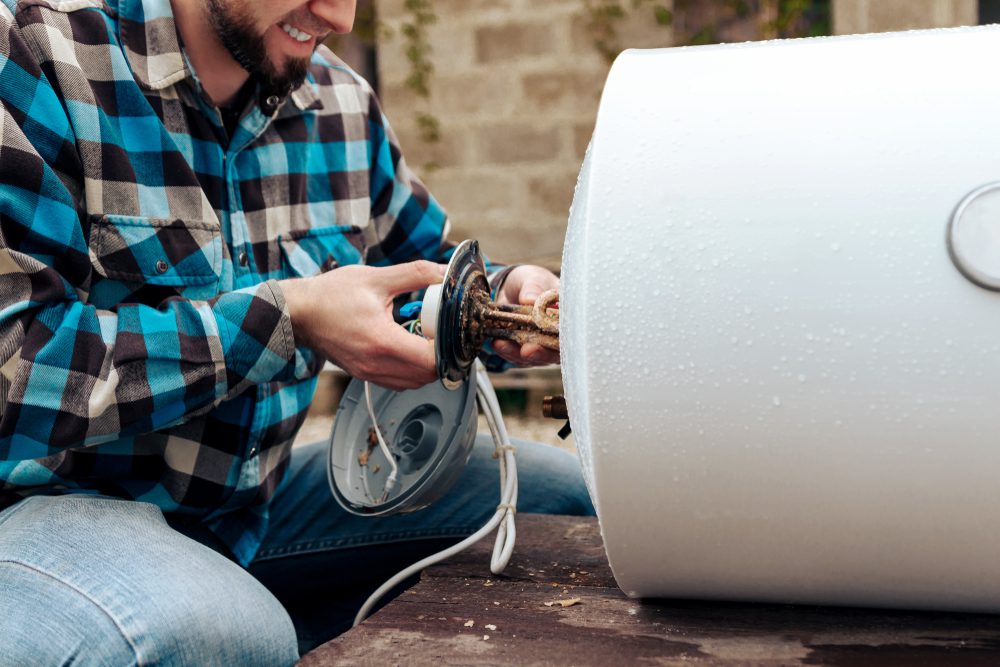Managing the Top Water Heater Crisis Situations
Managing the Top Water Heater Crisis Situations
Blog Article
Are you interested in facts concerning Common Hot Water Heater Problems?

A water heater is among one of the most vital basic appliances that can be found in a home. With water heaters, you don't need to undergo the tension of heating water manually each time there is a need to wash, do the laundry, or the recipes. Nonetheless, there is always an opportunity that your water heater would certainly act up similar to many mechanical devices.
It is important to note any kind of little malfunction and tackle it quickly before points get out of hand. Many times, your hot water heater begins to malfunction when there is a build-up of sediments as a result of continuous usage. As a preventative measure, routine flushing of your water heater is suggested to prevent sediment build-up and prevent practical failure.
Typical hot water heater emergencies as well as just how to handle them
Leaking hot water heater tank.
A dripping tank could be an indication of rust. It can create damage to the floor, wall and also electrical devices around it. You could even be at risk of having your house flooded. In this circumstance, you must shut off your water heater, enable it to cool down, and thoroughly look for the resource of the problem. At times, all you require to do is to tighten a couple of screws or pipe links in cases of minor leakages. However if this does not work and the leakage persists, you may need to utilize the solutions of a service technician for a suitable substitute.
Rising and fall water temperature level.
Your water heating system might begin producing water of various temperatures generally ice chilly or scalding warm. There might be a requirement to replace either the heating or the thermostat device of your water heating system.
Inadequate warm water
It may be that the water heating system can not support the warm water need for your house. You can update your water heating unit to one with a larger ability.
Tarnished or stinky water
When this takes place, you need to recognize if the problem is from the tank or the water source. You are specific that it is your water heater that is defective if there is no funny scent when you run cold water. The smelly water can be caused by rust or the accumulation of microorganisms or sediments in the water heater storage tank. Once you see this, you can attempt flushing out your container or changing the anode if the trouble lingers. The feature of the anode is to clean germs from your tank. Considering that the anode rod replacement calls for a detailed understanding of your water heating unit, you will certainly need the aid of a professional.
Verdict
Some property owners overlook little warning as well as minor faults in their water heater system. This just leads to additional damages as well as a feasible complete malfunction of your device. You should handle your hot water heater mistakes as quickly as they come near stay clear of even more expenses and unnecessary emergency troubles.
With water heating units, you don't need to go through the stress and anxiety of home heating water by hand every time there is a requirement to take a bath, do the washing, or the meals. Your water heater can start producing water of various temperature levels normally ice scalding or chilly hot. It might be that the water heater can not sustain the warm water demand for your apartment or condo. If there is no funny smell when you run cool water, then you are particular that it is your water heating unit that is faulty. The odiferous water can be triggered by corrosion or the build-up of microorganisms or sediments in the water heating system tank.
Common Water Heater Issues and What You Should Do
What Type of Water Heater Do You Have?
Before we begin it’s first important that you identify the type of water heater you have on your property. There are two main types of water heaters out there: conventional and high efficiency.
Both of these types of products typically use either gas or electricity to heat power. There are also solar water heaters that use a thermal collector on the roof or yard to heat the water.
While these models are not as common, they can cut heating costs in half. In this article, we will focus on conventional and high efficiency.
How Do My Electric and Gas Water Heater Work?
Though they look similar, electric and gas water heaters work very differently. It’s important to know their basic function because often problems can be specific to the heating source.
In the electric model, a thermostat on the side of the machine detects the temperature of the water in the tank. When the temperature needs to rise electricity flows to a heating element suspended in the water.
Gas models also use a thermostat device — typically with a mercury sensor at the tip and an additional sensor called a thermocouple. The thermocouple detects whether the pilot light is on and controls the flow of gas.
When the thermostat drops below the appropriate level gas is released which becomes ignited by the pilot light. The flame heats the bottom of the water tank which causes hot water to rise and cold water to drop.
This natural circulation continues until the water reaches the desired temperature. Then, the thermostat triggers the gas control valve to shut off the flow of gas.
What Are the Most Common Issues and How Do You Fix Them?
https://happyhiller.com/blog/common-water-heater-issues-and-what-you-should-do/

I was made aware of that article about Is Your Water Heater Leaking? from a friend on a different domain. Loved our blog posting? Please share it. Help other people check it out. Many thanks for your time. Visit us again soon.
Immediate response required? Report this page